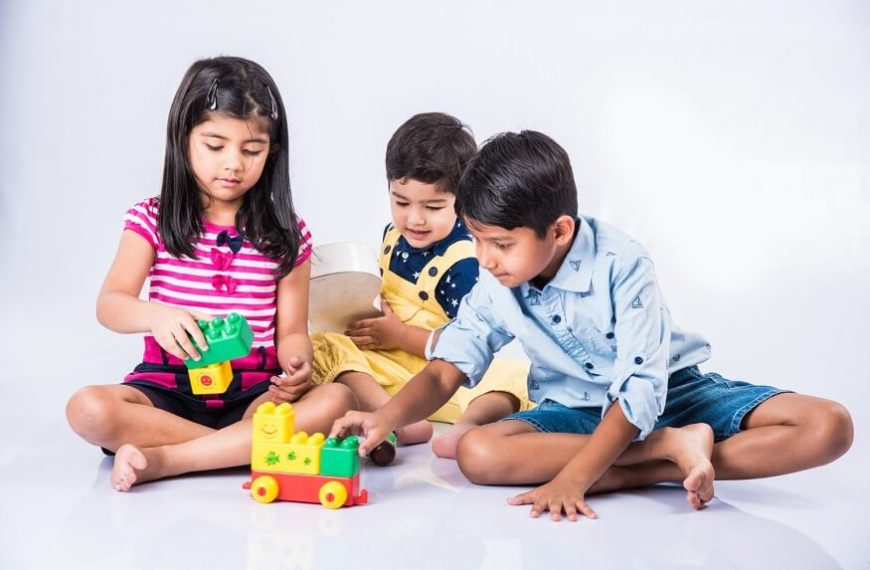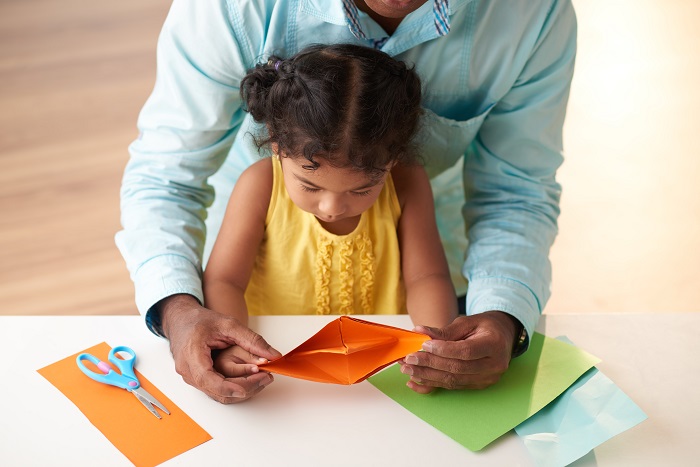We’ve all grown up becoming an active part of playgroups and pretend-play situations, haven’t we? While the girls in the playgroup pretended to get ready to make fresh chapatis for their husbands, the boys in the circle would pretend to polish their shoes to head to work. Our younger siblings automatically assumed the role of sons and daughters in the situation. In hindsight, it may seem like only fun and games but playgroups and pretend-play circles, especially for preschoolers, host a number of benefits for a child’s social and emotional behaviour.
What is a Playgroup?
Playgroups are typically informal or in some cases, controlled, monitored and formal gatherings of young children, accompanied by adults such as parents, caregivers, nannies, teachers, and the like. Children in playgroups come together to play together or engage in social activities. The main objective of a playgroup is for children to make friends while they actively seek opportunities for socialisation, learning, and socio-behavioural development in a supportive and playful environment.
While playgroups are mostly designed for toddlers and preschoolers, it may also be beneficial for children who have started formal schooling.
Now, let’s discover some benefits of playgroups for preschool socialisation:
Benefits and Impacts of Playgroup on Preschooler Socialisation
- Encourages Creativity and Imagination
As children play, engage, and converse with other children their age, it helps build their ability to think better, be more flexible, and boost their creativity. In turn, they also learn how to think independently, make decisions for themselves, and also empathise or consider another’s point of view. When children become involved with others, they often see different social-economic backgrounds, varied views of upbringing, religious beliefs, and a new set of social practices that they may otherwise not see at home. It’s a good way to introduce your children to the different ways of the world and have them explore different value systems.
- Social and Emotional Growth
Children are highly perceptive and if you allow them, they can master some social settings with their own judgement. As they pretend to play or play with other people, they practise different roles in life and learn how to walk in other people’s shoes. As they develop their own personalities, they also become more self-aware, and often assume the role of a leader or a secondary player, based on the situation. In this way, they also learn how to be involved in all sorts of group activities.
- Improved Language and Communication Skills
Playgroups are a fun and educational route to improving your child’s vocabulary. They learn how to say yes, no, and ask for things that they may find unsatisfactory. They encounter words and perhaps even languages they don’t hear at home. It will pique their curiosity and it opens the floor for discussion. As they pick up new words and phrases everyday, they are able to weave thoughts in newly-learned words and can communicate better. It adds to their social vocabulary and as a parent, you can always help them mend their ways if they are pronouncing words incorrectly, or in case they’ve picked up a foul word.
- Forging New Friendships
Playgroups might be the first place for your child to build relationships with other children. Building and maintaining friendships can help your child’s cognitive and physical well-being. This is also where they learn about power dynamics, about good and bad behaviours, about bullying, and where he stands in his circle of friends. Is he the type to hang back and let others take the call on the game of the day, or will he assume responsibility and wear the leader cap to drive the activities for the day? As children feel safe and secure around the friends he’s recently made, it contributes towards a higher self-esteem. While having friends may encourage good behaviours, not having peers may make them feel victimised.
- Problem-Solving Abilities
Everyday at the playgroup presents a new opportunity for your child to mingle and shine, or for them to navigate new challenges the best way they can. Playgroups teach children how to cope or change their plans when things don’t go the way they expected to in a game. When they face a hurdle together, they can put their thinking caps together to collectively come up with solutions that are beneficial to the entire group. They can use their sharp thinking for future problems and this in turn helps develop their memory. Playing in groups can also teach children how to win humbly while also accepting defeat with a smile on their face.
- Physical Development
Preschoolers are often encouraged to get at least three hours of activity everyday. Find playgroups where children are encouraged to move around and engage in physical games that are safe. Climbing monkey bars, racing each other, kicking a ball around, passing a ball to each other are fairly safe activities. Or, if they sit together to build Lego castles or change clothes on their dolls, they will also develop fine motor skills.
- Support Groups for Parents
It isn’t all fun and games and benefits for the children only, playgroups can also be beneficial for all parents or caregivers involved. If you’re in a new city, without much help or support, or even friends to begin with, use playgroups as an opportunity to connect with other parents and caregivers. By doing so, you can slowly and steadily build a solid social network and support group, where sometimes the only help you need may be to lend an ear to a new parent. You can also learn new tips and tricks about parenting and share some that have worked for you too!
At Eurokids, we emphasise on the importance of playgroups and pay keen attention to the growth and development of each child, even within the playgroup. With 1400+ pre-schools across 350+ cities, we nurtured 7,00,000+ children across the country. Along with age-appropriate stimulation, we provide a healthy balance of learning and fun to encourage their curious nature and fuel their creative side. Join our network today to reap the benefits of a world-class education.
















